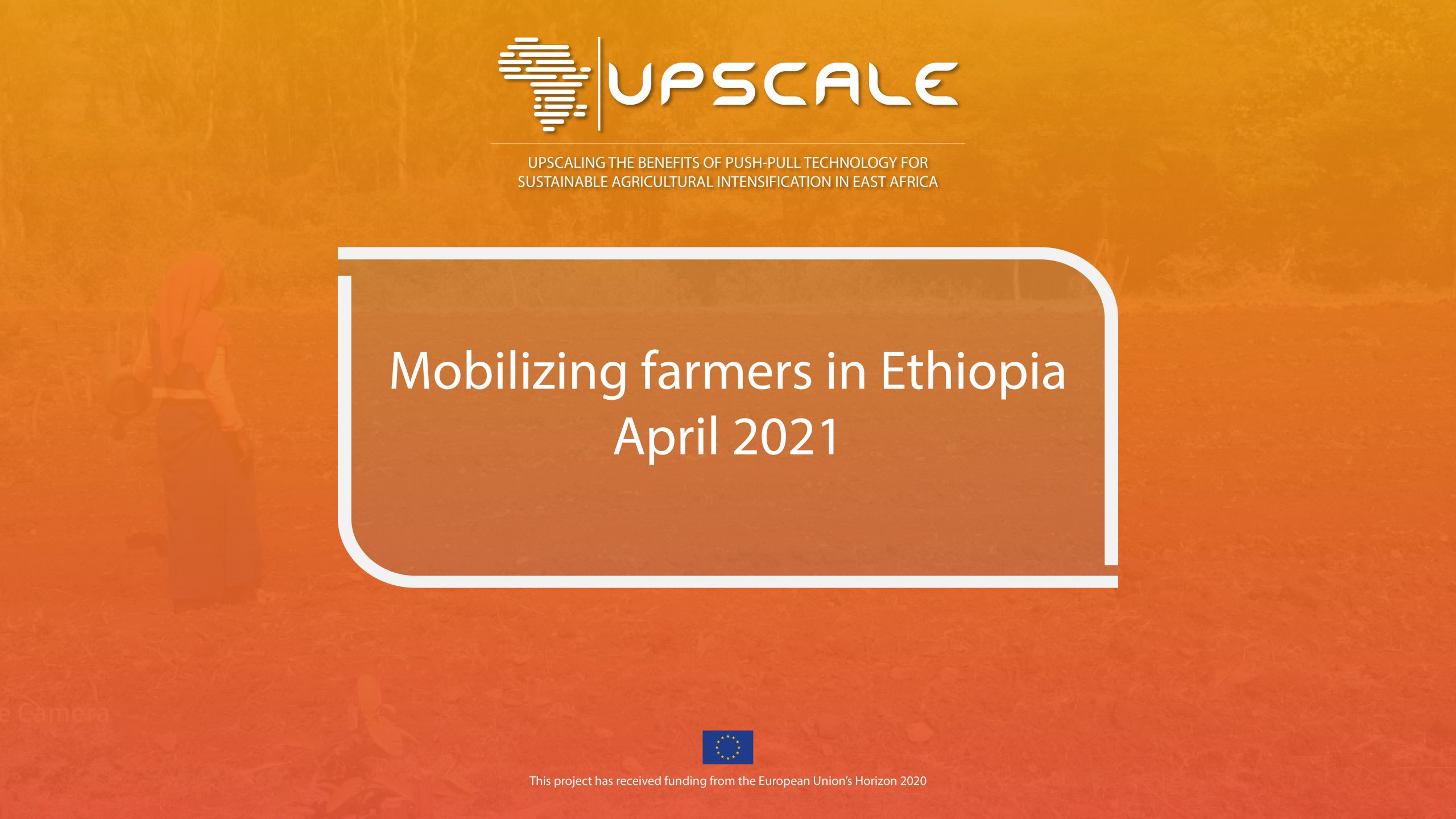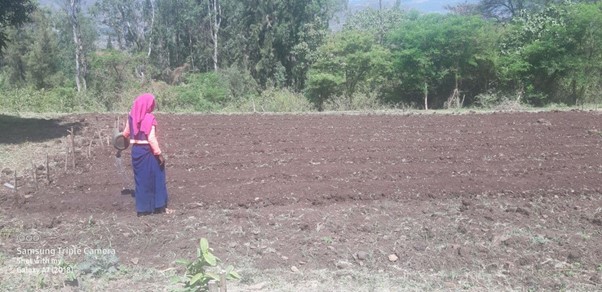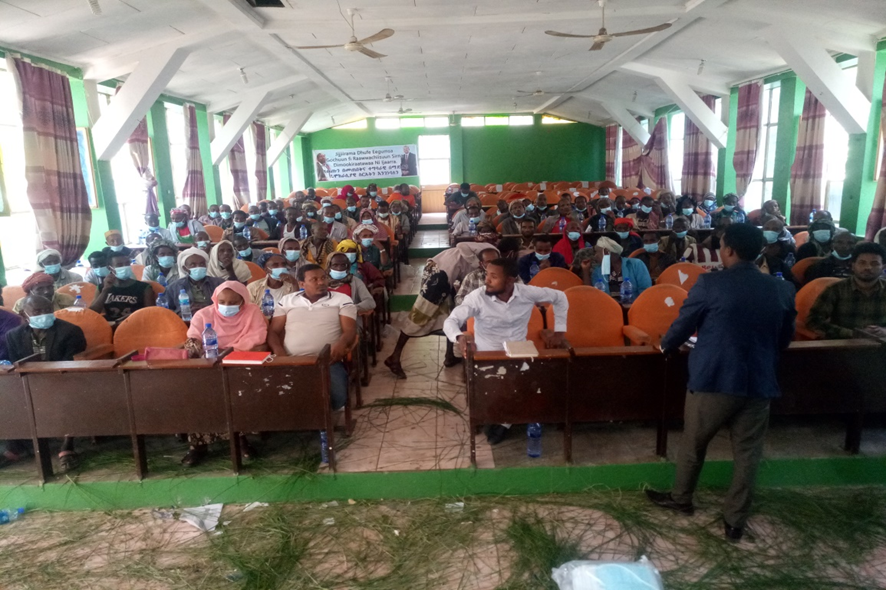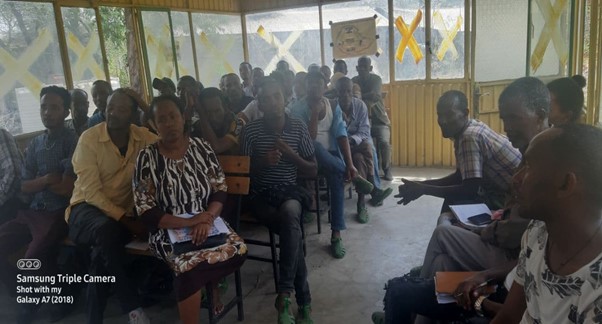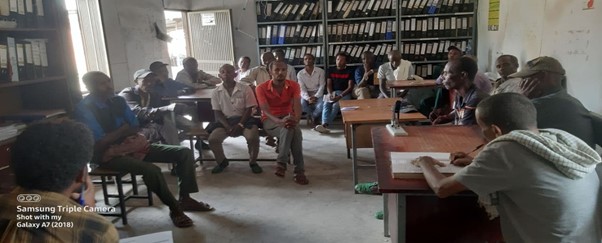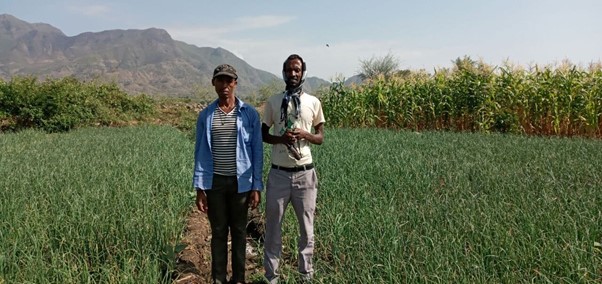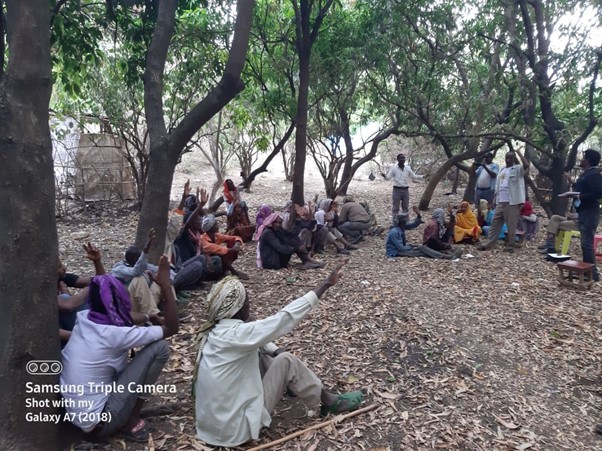In the efforts to mobilize the Ethiopian farmers to implement push-pull technology on maize control farms for the cropping season of 2021, UPSCALE partner – Institute for Sustainable Development (ISD) has organized three events during April 2021. Including the farmers and ISD staff, the organization aimed at including other relevant stakeholders namely, BoA officials, Agricultural offices authorities, and professionals/experts from respective Woredas, as well as Development Agents from the region.
The gatherings took place in several Ethiopian districts (woredas), namely Shewarobit city, Qawot Woreda (13/04/2021), Dewa Chefa, and Artuma Fursi Woreda (13/04/2021), and Kalu Woreda (21/04/2021). In the course of these three events, there were around 200 participants present due to limitations imposed by COVID-19.
What has been achieved?
The woreda agricultural office authorities and professionals have expressed a strong interest and willingness to support the implementation of the UPSCALE project and push-pull technology in their respective woredas. Concretely, this support will reflect in the following:
- Providing part of their nursery site to grow the seedling of Desmodium and Brachiaria for provisions to farmers with all the necessary inputs provided by ISD.
- Assigning a tentative focal person for this project in their office who will follow-up progress of the seedling in the nursery with the cost of administration covered by ISD
- Facilitating and controlling the status of the project at the kebele level and with the collaboration of ISD ensuring the delivery of input that will be provided, on behalf of the UPSCALE –project to the selected farmers, including maize seed, Desmodium, and Brachiaria seedlings.
When it comes to the farmers that want to implement the push-pull technology, the following is expected:
- To prepare 20mx20m area of land for push-pull technology implementation and 20mx20m for control in the cropping season 2021. Accordingly, they will identify plots for the maize push-pull and control farms and present the coordinates to the ISD team. Farmers included opted to produce maize on their push-pull practice rather than sorghum.
- The management and controlling of the agronomic practice of their farm.
- To not collect their yield before the ISD or woreda officials take data from the technology implemented farm
- To be engaged in the project participation/implementation.
Main findings
As the project, testimonials of other users and the benefits of the push-pull technology were presented, feedback from the farmers and other stakeholders serves as well to establish which are the current pain points and what are their expectations. ISD team has established that the agricultural professionals can provide adequate support and farmers willing to implement push-pull indeed have the capacity to do so in the next cropping season and actively contribute to their local communities as well as overall results of the UPSCALE project.
Nonetheless, as mentioned, pain points were also identified for the participating districts. On one hand, input and technical support to farmers has been insufficient so far and they are crucial in the following period and activities. On the other hand, despite the high number of included farmers, there is still a disproportion in terms of female farmers engagement. Based on the feedback collected by the ISD team, this is due to societal conditions in particular regions which do not allow for women to hold certain household positions. Such findings directly shape future steps and actions of the ISD team in order to engage more women as farmers, affecting not only the improvement economically but socially as well.
Future Steps
The ISD team took the assignment of preparation of nursery and maize seeds as quickly as possible to meet the requirements of the farmers that committed to the implementation of the push-pull technology. Therefore, the focus of the next activities is the preparation of the promised inputs provided that the security conditions are well settled, including the delivery of Desmodium and Brachiaria seeds. Moreover, greater attention will be given to increase the numbers of female participants, and several strategies to do so drafted. The woreda Agricultural office officials will provide the necessary support to the farmers that fully agreed and confirmed their involvement in the project activities.
The next cropping season will be promising for UPSCALE project success in Ethiopia part! Stay tuned for more information from the field as UPSCALE events take place next week in Kenya and Rwanda!
